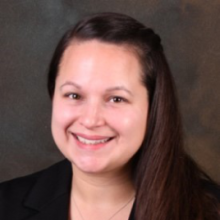
Among the more practical, how-to workshops at this year’s Young Farmer Leaders Conference was a two-man panel focused on Young Famer engagement — an evergreen challenge for county Farm Bureaus statewide.
Even as current president of the Presque Isle County Farm Bureau, Onaway cattleman Christian Tollini remains involved in his county’s Young Farmer program, challenging his peer-leaders to maintain a momentum struck in recent years.
“Three-fourths of our board is now Young Farmers,” Tollini said. “It’s brought a lot of life to our county Farm Bureau.”
In Kalamazoo County, first-generation farmer and outgoing state Young Farmer chair Mitch Kline started with no such advantages.
“We didn’t even have a chair,” Kline said. “But I went to college for eight years and made a lot of connections through those friends.”
Key to getting those acquaintances actively engaged, Kline said, was making the program fun.
“The hard part now, as I age out, is trying to find the next generation,” he added, noting that his wife Brandie — a few years younger than Mitch — helps expand the pool of prospects simply through her somewhat younger peer group.
“If you can marry young you can recruit a lot of Young Farmers!” Kline added in his trademark humor.
Posing a question from the audience about the frequency and relative intensity of Young Farmer events in their respective counties, Clare County’s Erika Schunk put both Tollini and Kline back on more serious footing.
“We don’t have a set schedule,” Tollini responded, adding that the fine line between casual Young Farmer gatherings and more formalized events gets blurry when organizers are able to sprinkle some organizational content into more laid-back get-togethers.
“Informal is good,” Tollini said. “We’ll do a card night and there’ll be some Farm Bureau in the conversation, but not on a set schedule. We try for three or four events per year, sometimes partner with the Huron Shores Farm Bureau to the south of us.”
Kline noted that one approach that’s worked in Kalamazoo was increasing the frequency of the District 1 Young Farmer Chair Caucus, from annual to quarterly. Those conversations invariably lead to both comparing notes on county events and scheming up new collaborative activities at the district level — which led Kline to add this salient point:
“Surround yourself with capable people,” he said, “especially good planners.”
“Every county is different,” Tollini said, adding that identifying viable Young Farmer leaders can be especially challenging.
“You need that Young Farmer who is both passionate and sociable,” he said. “And you’ve got to provide something of value — make it worth their time.
“In Presque Isle the draw is just getting together and having a little fun,” and on the ground level, that’s usually all that’s necessary for a program that largely revolves around building a peer network for its participants.
Back home in Monroe County, workshop attendee Matt Lavoy faces a different challenge: fighting the misconception that Farm Bureau is an outdated old-timers club. Like Kline, Lavoy was met with a mostly blank slate when he took over as Young Farmer chair.
He’s found some success focusing on local FFA chapters in search of promising prospects with which to start fleshing out his roster.
“I was big into FFA but knew nothing about Farm Bureau,” Kline responded, encouraging Lavoy to remain diligent and consider broadening his search to the ranks of Collegiate Farm Bureau members, such as those based at Monroe Community College.
To that end Lavoy was put in touch with MFB staff managing the organization’s relationship with Collegiate Farm Bureau and the ag-tech programs on offer at 14 community colleges statewide, coordinated through Michigan State University’s College of Agriculture and Natural Resources.
Share Story
Article Tags

